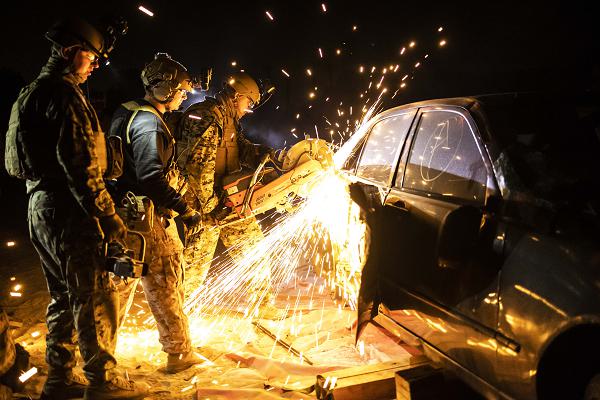
Camp Pendleton, California. (May 16, 2025): When an American aircraft goes down in enemy territory, the military must move fast to recover air crews and any extremely sensitive information on board. In this photo by Sergeant Bryant Rodriguez, Marines cut into a vehicle during the Tactical Recovery of Aircraft and Personnel (TRAP) course, a program specifically designed for the recovery of aircraft, personnel, and equipment in the event an aircraft goes down either due to mechanical failures or by enemy fire.
The course teaches how to develop and execute plans to recover the personnel, aircraft, and any sensitive material in the event that they go down. Once assembled, a highly skilled team of professionals will safely extract downed aviators while destroying downed aircraft to prevent sensitive materials from falling into the wrong hands.
For the Marines, a TRAP mission is similar to a combat raid where troops move in swiftly, control the ground situation, complete the objective, and then quickly extract themselves and any assets recovered.
In a typical training scenario, Marines arrive via Medium Tiltrotor helicopters and are inserted on the outskirts of a mock urban environment. Next, the assault team infiltrates the town to locate and recover a simulated, downed unmanned aerial vehicle. After strategically moving throughout town to locate the downed UAV, the Marines return to the outskirts of the town to be extracted from the area with the recovered equipment in hand.
In some cases, a TRAP mission may require the destruction of sensitive equipment that cannot be extracted from the scene. During the Osama bin Laden raid, for example, one stealth Black Hawk helicopter was damaged and subsequently destroyed by US Special Forces to prevent the compromise of classified technology.
When an aircraft goes down, the military executes these high-stakes, dangerous operations to rescue aviators and secure America’s secrets.


